第97章
The prevalent view of "Nature" has been akin to that which long reigned with reference to disease.This used to be considered as a distinct entity apart from the processes of life, of which it is one of the manifestations.It was a kind of demon to be attacked with things of odious taste and smell; to be fumigated out of the system as the evil spirit was driven from the bridal-chamber in the story of Tobit.The Doctor of earlier days, even as I can remember him, used to exorcise the demon of disease with recipes of odor as potent as that of the angel's diabolifuge,--the smoke from a fish's heart and liver, duly burned,--"the which smell when the evil spirit had smelled he fled into the uttermost parts of Egypt." The very moment that disease passes into the category of vital processes, and is recognized as an occurrence absolutely necessary, inevitable, and as one may say, normal under certain given conditions of constitution and circumstance, the medicine-man loses his half-miraculous endowments.The mythical serpent is untwined from the staff of Esculapius, which thenceforth becomes a useful walking-stick, and does not pretend to be anything more.
Sin, like disease, is a vital process.It is a function, and not an entity.It must be studied as a section of anthropology.No preconceived idea must be allowed to interfere with our investigation of the deranged spiritual function, any more than the old ideas of demoniacal possession must be allowed to interfere with our study of epilepsy.Spiritual pathology is a proper subject for direct observation and analysis, like any other subject involving a series of living actions.
In these living actions everything is progressive.There are sudden changes of character in what is called "conversion" which, at first, hardly seem to come into line with the common laws of evolution.But these changes have been long preparing, and it is just as much in the order of nature that certain characters should burst all at once from the rule of evil propensities, as it is that the evening primrose should explode, as it were, into bloom with audible sound, as you may read in Keats's Endymion, or observe in your own garden.
There is a continual tendency in men to fence in themselves and a few of their neighbors who agree with them in their ideas, as if they were an exception to their race.We must not allow any creed or religion whatsoever to confiscate to its own private use and benefit the virtues which belong to our common humanity.The Good Samaritan helped his wounded neighbor simply because he was a suffering fellow-creature.Do you think your charitable act is more acceptable than the Good Samaritan's, because you do it in the name of Him who made the memory of that kind man immortal? Do you mean that you would not give the cup of cold water for the sake simply and solely of the poor, suffering fellow-mortal, as willingly as you now do, professing to give it for the sake of Him who is not thirsty or in need of any help of yours? We must ask questions like this, if we are to claim for our common nature what belongs to it.
The scientific study of man is the most difficult of all branches of knowledge.It requires, in the first place, an entire new terminology to get rid of that enormous load of prejudices with which every term applied to the malformations, the functional disturbances, and the organic diseases of the moral nature is at present burdened.
Take that one word Sin, for instance: all those who have studied the subject from nature and not from books know perfectly well that a certain fraction of what is so called is nothing more or less than a symptom of hysteria; that another fraction is the index of a limited degree of insanity; that still another is the result of a congenital tendency which removes the act we sit in judgment upon from the sphere of self-determination, if not entirely, at least to such an extent that the subject of the tendency cannot be judged by any normal standard.
To study nature without fear is possible, but without reproach, impossible.The man who worships in the temple of knowledge must carry his arms with him as our Puritan fathers had to do when they gathered in their first rude meeting-houses.It is a fearful thing to meddle with the ark which holds the mysteries of creation.Iremember that when I was a child the tradition was whispered round among us little folks that if we tried to count the stars we should drop down dead.Nevertheless, the stars have been counted and the astronomer has survived.This nursery legend is the child's version of those superstitions which would have strangled in their cradles the young sciences now adolescent and able to take care of themselves, and which, no longer daring to attack these, are watching with hostile aspect the rapid growth of the comparatively new science of man.
The real difficulty of the student of nature at this time is to reconcile absolute freedom and perfect fearlessness with that respect for the past, that reverence, for the spirit of reverence wherever we find it, that tenderness for the weakest fibres by which the hearts of our fellow-creatures hold to their religious convictions, which will make the transition from old belief to a larger light and liberty an interstitial change and not a violent mutilation.